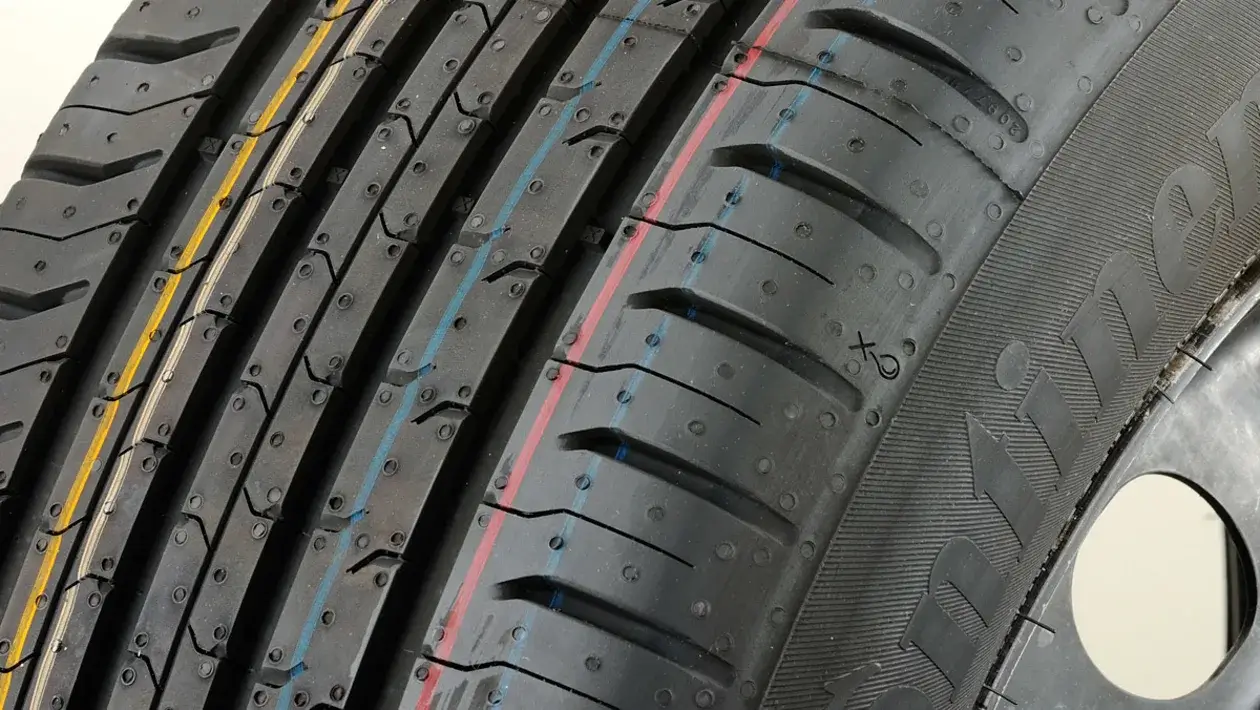

Auto
Compatibility of 5W-30 and 5W-20 Oils: What You Need to Know
When it comes to engine oil, one of the most common questions that people ask is whether 5W-30 and 5W-20 oils are compatible. While both oils have the same viscosity rating (5W), there are some differences between the two that can affect their compatibility. In this post, we’ll explore the compatibility of 5W-30 and 5W-20 oils and will try to answer “Can I Use 5W30 instead of 5W20.”
What are 5W-30 and 5W-20 Oils?
Before we delve into the compatibility of these two oils, let’s first take a look at what they are and what they do.
5W-30 and 5W-20 oils are two of the most common types of engine oil used in modern vehicles. The numbers before the “W” refer to the oil’s viscosity rating at cold temperatures. The “W” stands for “winter” and indicates that the oil has been tested at colder temperatures. The lower the number before the “W,” the better the oil will perform in cold temperatures.
The numbers after the “W” refer to the oil’s viscosity rating at normal operating temperatures. Viscosity is the oil’s resistance to flow and is measured in units of centistokes (cSt). The higher the number after the “W,” the thicker the oil will be at normal operating temperatures.
5W-30 oil has a viscosity rating of 30 cSt at normal operating temperatures, while 5W-20 oil has a viscosity rating of 20 cSt at normal operating temperatures. Both oils are designed to lubricate and protect the engine’s moving parts, but the different viscosity ratings can affect how well they perform in certain conditions.
Compatibility of 5W-30 and 5W-20 Oils
The compatibility of 5W-30 and 5W-20 oils depends on a few factors, including the engine’s design and the manufacturer’s recommendations. Here are some things you need to know about their compatibility:
Manufacturer Recommendations: The first thing to consider when it comes to the compatibility of these two oils is the manufacturer’s recommendations for your specific vehicle. Each vehicle is designed to work with a certain type of oil, and the manufacturer will specify which oil you should use in the owner’s manual or on the oil cap. Always follow the manufacturer’s recommendations when choosing an oil for your vehicle.
Engine Design: The engine’s design can also play a role in the compatibility of these two oils. Some engines are designed to work better with 5W-30 oil, while others are designed to work better with 5W-20 oil. Always check your owner’s manual to see which oil is recommended for your specific engine.
Temperature Conditions: The temperature conditions in which you drive can also affect the compatibility of these two oils. If you live in an area that has a cold climate, you might want to use 5W-30 oil, as it will perform better in cold temperatures. If you live in a warmer climate, you might want to use 5W-20 oil, as it will perform better in hot temperatures.
Mixing Oils: It’s generally not recommended to mix oils of different viscosity ratings. Mixing 5W-30 and 5W-20 oils can affect the oil’s viscosity and may cause it to perform poorly or not at all. If you need to change the oil in your vehicle, always use the same type of oil that is currently in the engine.
Benefits of Using 5W-30 Oil
Now that we’ve looked at the compatibility of 5W-30 and 5W-20 oils, let’s explore the benefits of using 5W-30 oil:
Better Protection: 5W-30 oil is thicker than 5W-20 oil, which means it can provide better protection for your engine’s moving parts. This is especially true for engines that operate at high temperatures or have high mileage.
Improved Fuel Economy: While 5W-30 oil is thicker than 5W-20 oil, it can still provide good fuel economy if it meets the API SN standard. The SN standard is a performance standard set by the American Petroleum Institute (API) that ensures the oil meets certain requirements for fuel economy, wear protection, and emissions control.
Better Performance in Extreme Conditions: 5W-30 oil can provide better performance in extreme conditions, such as high temperatures or heavy loads. This is because the oil is thicker and can better withstand the stress placed on the engine.
Benefits of Using 5W-20 Oil
Now let’s explore the benefits of using 5W-20 oil:
Improved Fuel Economy: 5W-20 oil is thinner than 5W-30 oil, which means it can provide better fuel economy. This is because thinner oils reduce friction and allow the engine to operate more efficiently.
Better Performance in Cold Temperatures: 5W-20 oil is designed to perform better in cold temperatures than 5W-30 oil. This is because the oil is thinner and can flow more easily through the engine when it’s cold, which reduces wear on the engine’s moving parts.
Meets Manufacturer Requirements: Many manufacturers now recommend the use of 5W-20 oil in their engines. Using the recommended oil can help ensure that your engine operates as intended and can also help preserve your vehicle’s warranty.
The Bottom Line
In conclusion, the compatibility of 5W-30 and 5W-20 oils depends on several factors, including the engine’s design, temperature conditions, and manufacturer recommendations. It’s important to always follow the manufacturer’s recommendations when choosing an oil for your vehicle, and to avoid mixing oils of different viscosity ratings. Both 5W-30 and 5W-20 oils have their benefits, so it’s important to choose the one that is best for your specific vehicle and driving conditions. By using the right oil, you can help ensure that your engine operates efficiently and remains protected for years to come.
Auto
Continental ContiEcoContact 5: The Ultimate Choice for Superior Performance and Eco-Friendly Driving

As passionate automotive enthusiasts, we understand the importance of finding the perfect tire that offers exceptional performance without compromising on environmental responsibility. That’s why we are proud to introduce the Continental ContiEcoContact 5, a game-changer in the world of automobile tires. In this comprehensive guide, we will delve into the outstanding features and benefits of the ContiEcoContact 5, showcasing why it surpasses other options available in the market today.
Unleashing Unparalleled Performance
When it comes to choosing the ideal tire, performance is a top priority for any driver. The Continental is engineered with cutting-edge technology to deliver an outstanding driving experience in various road conditions. Let’s explore the key factors that make it stand out from the competition:
Advanced Tread Design: The ContiEcoContact 5 boasts a unique tread pattern that ensures optimal grip and stability, allowing for precise handling and enhanced control. Whether you’re maneuvering through winding roads or navigating city streets, this tire offers remarkable traction and responsiveness, instilling confidence with every turn.
Fuel Efficiency: One of the notable highlights of the ContiEcoContact 5 is its remarkable fuel efficiency. By reducing rolling resistance, this tire minimizes energy wastage and promotes better mileage, ultimately leading to cost savings and reduced carbon emissions. With the ContiEcoContact 5, you can enjoy a thrilling drive while minimizing your environmental footprint.
Silent and Smooth Ride: Continental’s innovative noise-reducing technology ensures that the ContiEcoContact 5 provides an exceptionally quiet and comfortable ride. Say goodbye to annoying road noise and vibrations, and indulge in a serene driving experience like never before.
Outstanding Wet and Dry Performance: The ContiEcoContact 5 is engineered with an advanced silica compound that enhances grip on both wet and dry surfaces. With its exceptional braking capabilities, this tire delivers optimal safety and peace of mind, even in challenging weather conditions. Stay in control, rain or shine.
Eco-Friendly Innovation
In today’s world, it’s crucial to prioritize sustainability and eco-conscious choices. The Continental ContiEcoContact 5 embodies the brand’s commitment to environmental responsibility. Let’s explore how this tire contributes to a greener future:
Low Rolling Resistance: By minimizing energy loss through reduced rolling resistance, the ContiEcoContact 5 helps conserve fuel and reduces carbon dioxide emissions. This not only benefits the environment but also translates into significant cost savings for drivers in the long run.
Durable and Long-Lasting: The ContiEcoContact 5 is designed with longevity in mind. Its robust construction and optimized tread compound ensure excellent wear resistance, extending the lifespan of the tire. This durability not only reduces waste but also saves you money by minimizing the frequency of tire replacements.
Eco-friendly Materials: Continental prioritizes the use of sustainable materials in the manufacturing process. The ContiEcoContact 5 incorporates innovative technologies and eco-friendly components that minimize the environmental impact without compromising on performance or safety.
Continental: The Trusted Name in Tires
As a leading brand in the automotive industry, Continental has garnered a well-deserved reputation for excellence, safety, and innovation. With over a century of expertise, Continental consistently raises the bar when it comes to tire manufacturing. The ContiEcoContact 5 is a testament to their unwavering commitment to delivering superior products that exceed customer expectations.
Auto
Tools for Top Fleet Managers

Fleet vehicles have a wide array of uses, such as ensuring that goods arrive at their destinations and that service orders are carried out. These commercial fleets need to be managed effectively. Fleet managers must have the tools and skills to do so. Here we will look at what makes a good fleet manager and what tools they require to excel at their jobs.
Skills that Top Fleet Managers Have
Fleet managers need to be able to multi-task. They constantly deal with incoming information that they need to respond to while monitoring their fleets effectively.
This also requires good time management. A crisis can derail tasks that have to be performed and a good fleet manager will be able to prioritize their daily work and emergencies without getting flustered.
Communication skills are vital with employees and employers as well as with companies the fleet is doing work for.
A goal orientation will help the fleet manager to set goals and monitor performance against targets. They constantly look for new ways to reduce costs and enhance goal drivers.
Working in a dynamic industry requires patience and flexibility. Fleet managers accept accountability for their areas of business, knowing that the company depends on them doing their jobs well. Decisions often have to be made on the spur of the moment and an effective fleet manager is confident and capable of making sound decisions based on their expertise and input from their tools and equipment for monitoring their fleets.
Finally, they need to be proactive and resourceful.
Fleet Management Software
Modern fleet managers know that they cannot rely on manual systems to manage their fleets. Vehicle management software has become a necessity in managing even small fleets. This allows them to monitor and keep track of every aspect of their operations.
Both vehicles and drivers are managed with this software. Drivers may be guilty of poor driver behaviors, such as braking too sharply, which is detrimental to their vehicles, or not wearing seat belts, which impacts their safety. Some employees will take a chance and use a company vehicle outside of the company’s area of business for private use. This costs the business money and must be dealt with.
Vehicles also need to be monitored to ensure that they go for servicing at the right time and that faults and engine failures are picked up before they cause an incident or become more expensive to repair.
Tools for Vehicle Management
GPS is used to keep track of vehicles. This ensures that drivers are in the right place at the right time. It makes for a more efficient fleet as the nearest driver can be located and sent on a job or delivery. Non-motorized assets, like trailers, can also be monitored in case they are unhitched, and risk being lost.
Geotab is used to provide information on various statuses pertaining to a vehicle. This includes battery voltage, vehicle identification number, seat belt, emissions, engine hours, odometer, and engine RPM. Geotab GPS tracking devices keep track of where a vehicle is. All this data can tell the fleet manager various things, such as when to schedule a vehicle for repairs or a service, or when a driver is non-compliant or driving unsafely.
Top fleet managers install fleet management software in their fleet vehicles and use the data obtained from it to manage more effectively.
Auto
How to Choose The Right Private Airport Car Service For A Stress-Free Journey?

When traveling to a distant place, many things need to be considered. Hiring a private car service is one of them. When you visit somewhere either for your work or enjoyment, you need a car service that would drop you at your destination. This is when you must employ a private airport car service.
Therefore, before you visit, you must be careful about researching airport car services so that you have enough information so you don’t have to stress over for getting an airport car at the last moment.
Why is it important to choose an airport car service?
Choosing an airport service is important for one’s good. When you visit a place you are new to, you are unaware of the rules and regulations of that place, and therefore, hiring an airport service is important.
There are many advantages of choosing an airport car service, a few of them are mentioned below:
- Increased security and safety
- Time-saving convenience
- Customized travel arrangements
- Professional and experienced drivers
- Luxury and comfort
- Stress-free travel experience
Therefore, due to these benefits, it is important to hire an airport car service.
How to choose the right airport car service?
Selecting the right airport car has a few tips, let’s have a look at them:
1. Research private airport car services:
The airport car service will pick you up on time and drop you at your location without delay. So, for such convenience, you ought to be careful regarding researching private airport car services so that you land a reliable and reputed car service.
2. Reviews and ratings:
The next important point is evaluating customer reviews and ratings. These will give you a great idea about the services of private cars. Moreover, you will have a great idea about professionalism and the reputation of the company. Reviews let us know how happy the previous customers have been with the company’s services.
3. Certified company:
Before you book your airport cab, be very careful regarding the certification of the company. Checking for licenses and certifications is very important. If you neglect this point you can end up in serious trouble.
4. Assessing the fleet of vehicles:
There are several cars available at the airport car service, therefore, you must find a car from the fleet that best fulfills your needs. Once you assess the fleet of cars you will find many cars according to your requirement.
5. Service area coverage:
Determining service area coverage before booking a car service is necessary. In this way, the chauffeur will know the destination of the customer and he will carry out his duty very carefully. He can even use GPS for the right location. You can check by searching online queries like car service Albany to Newark and select one of the best long distance car service providers online.
6. Affordability:
While looking for a car, you need to keep in consideration, your budget. You can be comparing pricing and affordability of different companies so that you find the most affordable one. Therefore, you must hire a car that is within your budget.
7. Reputation and experience of the company:
You must be assessing the reputation and the experience of the company so that you get professional drivers. Moreover, this would let you know that the car services are punctual or not. A reputed company will send its car on time and ensure the safety of its customers. Moreover, the reputation of the company also reflects their professionalism and great quality service.
Furthermore, you must also be careful about ensuring availability and responsiveness of the airport car service providers. Typically, they reply soon however you must start looking for a car service 2 days before your travel day to avoid end time chaos.
8. Professional drivers:
Verifying the professionalism of drivers is necessary as it ensures the safety of the customer and the drivers’ punctuality. Professional drivers are well aware of the traffic rules and they will avoid any mishap and deliver you a safe and comfortable ride.
9. Insurance coverage:
Checking for insurance coverage is fundamental. However, rental car insurance is not common. Mostly personal car insurance is provided by the insurance coverage, they do not cover rental car services. However, in case of an accident sometimes your own company provides insurance.
Therefore, this is how you choose an airport car service for a stress-free journey and to enjoy a safe and comfortable ride. Make sure you follow these tips to achieve incredible airport car service.

 Business3 years ago
Business3 years agoFind out how useful a loan is without a credit check

 Business2 years ago
Business2 years agoBest Workplace Upgrade

 Digital Marketing3 years ago
Digital Marketing3 years agoIs YouTube Marketing Capable of Taking Your Business to the Next Level?

 Food3 years ago
Food3 years ago5 Best and Worst Foods for Boosting Metabolism

 Business3 years ago
Business3 years agoContent Creation Tips Every Digital Manager Needs to Know

 Travel3 years ago
Travel3 years agoA Quick Traveler’s Guide to Malaga – You Can’t-Miss

 Lifestyle3 years ago
Lifestyle3 years agoHow to Choose the Best Air Fryer for Me

 Fashion3 years ago
Fashion3 years ago8 Top Leather Jacket Picks To Try Out This Year















